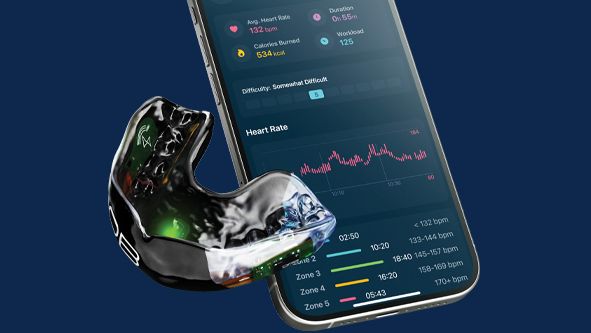Before I spent all my free time running, doing yoga and resistance training, and adopting all the other healthy habits we’re told to do to keep an aging body healthy, I trained in a different way. Once upon a time, four times a week, I would strap on a pair of heavy 14lbs gloves and go kickboxing.
It’s hard on the hips, the shins, the knees (and the repeated head impacts are probably not good for your brain in the long-term either) but I was a lithe 21-year-old in the best shape of my life, and I was absolutely certain I was going to live like this forever.
Of course, any time I strap on the gloves now, it’s considerably harder. For one thing, I’m eleven years older, less fit, and very out of practice. For another, even the best smartwatch can prove inconvenient: I was testing a chunky running watch during a boxercise class recently, and kept accidentally pausing the tracked workout inside of my cuff.
Smart rings are one solution, but they’re not for everyone; and if you’re doing a combat sport like jiujitsu or rugby, wearing jewelry is out of the question. Surely, I thought, as I unpaused my workout for the sixth time as I switched gloves for pads, there’s a better wearable you can use to track your health during combat sports – and the Orb Sport Smart Mouthguard is just the thing I was looking for.
The Smart Mouthguard is a conventional-looking mouthguard that hides an array of sensors that are designed to monitor not just your heart rate and calorie burn, but your movements too. Like the best smart rings, it’s based around a ‘set and forget’ style of tracking: just pop it in after setup and away you go. Just like with smart rings, you’ll need to do a bit of sizing beforehand to ensure it’s comfortable, which involves biting into a conventional soft mouthguard and sending it off so that your Orb Sport Smart Mouthguard can be moulded to the imprint of your teeth.
The Smart Mouthguard can even estimate statistics such as stride length using a combination of your height and a metric called ‘movement intensity’. Tracking G-force in three dimensions across X, Y and Z axes in the app also enables the mouthguard to estimate the force of the impacts you sustain. This is crucial: a higher-scoring impact might indicate that you need additional rest, recovery, or perhaps even hospital treatment.
According to the Orb Sport website, the Impacts feature is in beta, but it uses several key metrics to estimate the force of an impact, including the aforementioned graph. Impact Region calculations even display the percentage of impacts detected by the mouthguard on the left side versus the right side of the head. For sports with a high rate of concussions, such as American football and rugby, this could be a game-changing metric.
The Orb Sport Smart Mouthguard costs $349.99 (around £270 / AU$530) and is available from the Orb Sport website. It currently ships only to the United States.





